Coastal culture
CULTURES SKILLS
- Fishing
- Rowing
- Swimming
- Weather-Watching
- Diving
- Boat Pilot
- Fletching
- Navigation
- Rope Mastery
- Sailing
- Hide Item
Legend
“People of the coastlands… have tricked oh so many… a pirate, trader, and indland lord.”
Description
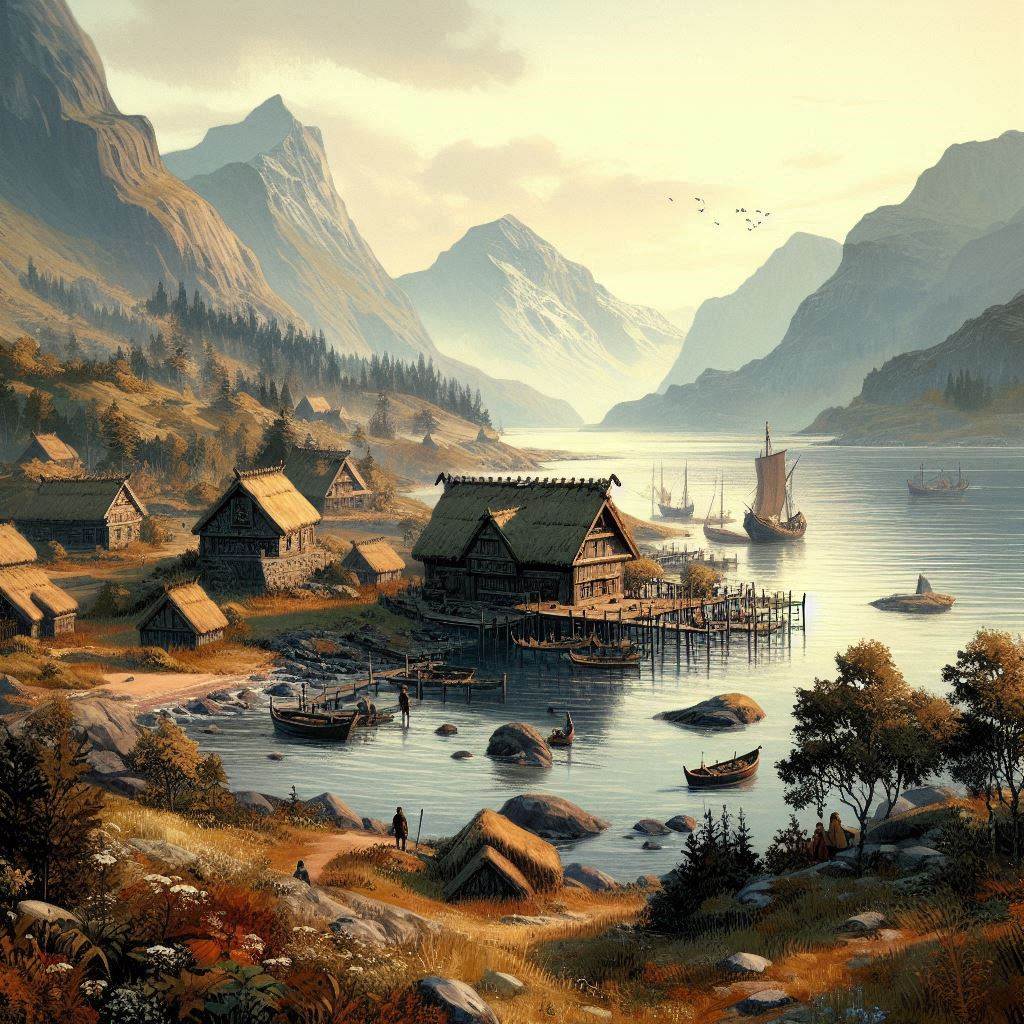
Coastal people are adaptable, resourceful, and skilled in navigation. Their lives revolve around the coast, with fishing being central to their daily routines, which are dictated by the tides and the handling or trading of the catch of the day. They possess a profound understanding of ocean currents and weather patterns, which enhances their exceptional seafaring skills, allowing them to venture far from shore. Their techniques and tools for fishing, boat building, and navigating the shores are often well-guarded secrets, with boats intricately decorated and serving as a source of pride for the community. Coastal communities are closely knit, relying on each other for their livelihood, and they value community and cooperation due to the unforgiving nature of the sea.
Lifestyle: Coastal people live in extended families and reside in hamlets, villages and fortified holds. They are gifted at their crafts, and are poets and storytellers with a rich oral tradition that preserves their history and legends.
Diet: Coastal diets are rich in seafood, including a wide variety of fish, shellfish, and crustaceans. Seaweed and other marine plants are also common. Coastal communities often trade with inland areas for grains, vegetables, and fruits, creating a balanced diet. However, their reliance on the ocean means that bad weather or poor fishing seasons can lead to food shortages.
Traditions and Stories: Coastal communities have a rich tradition of storytelling, with tales of legendary seafarers, mythical sea creatures, and heroic exploits. Festivals often celebrate the sea’s bounty and involve boat races, singing, and dancing.
Marriage Pattern: Marriage is typically monogamous, often arranged to strengthen ties between families and clans. Political and economic alliances are common motivations behind marriages.
Religion: Their religion involves superstitious rituals based on interpretations of the “true gods.” The clergy are both revered and feared. They have strong beliefs related to the sea, with races, spirits, or deities associated with water.
- Religious system: Nature worship of their connection to the natural world, with deities representing elements or animals.
- God-Mortal Interaction: Nature Worship with a strong connection to the sea.
- Rituals: Seafaring rituals, offerings to ensure safe passage, and ceremonies for the deceased.
- Impact on Society: Religion are a source of conflict among groups. Priests, shamans, or other leaders often hold positions of power, shaping legal codes and social norms.
Skjald Sejrik
Craftsmanship: Their craftsmanship, while seemingly crude, holds a rustic appeal. It typically involves materials like bone, skin, tin, leather, yarn, wood, woll, flax. Most are functional items, especially related to fishing and seafaring.
Clothing & Decoration: Their clothing reflects their proximity to the sea, made from durable materials like heavy canvas and waterproof leather. They wear wool and hide tunics with leggings, rough overcoats, short cloaks, and fur. Seashells and ocean motifs adorn their attire.
Armor: They generally wear no armour or use soft leather for protection.
Weapons: Their weapons include clubs, daggers, handaxes, javelins, nets, short bows, spears, and swords.
Special Items: Special items include intricately decorated boats, unique navigational tools, and talismans for protection against sea spirits and dragons.
Skjald El Mary
Time: Coastal communities follow moon cycles, which are linked to tides and fishing; they also have seasonal rhythms for their festivities and trading schedules.
Accomplishment and achievement: Coastal people are tribal-orientated, with an emphasis on nautical skills and community well-being. They seek a balance between individual competence and community participation, with success measured by the wealth and safety of the entire coastal community. They prize successful fishing trips, shipbuilding, and long-distance exploration.
Authority Interaction: In coastal communities, practical respect for experienced elders, skilled navigators, and experienced sailors is essential. Coastal leaders tend to be harbour managers or senior fishermen whose authority is based on experience and knowledge, as well as a strong feeling of independence.
Fears & Inabilities: Numerous superstitions, notably a fear of becoming Arisen.
Mien: Culture has a medium influences demeanor, but individual personality is still evident.
Mannerism: adaptable, resilient, suspicious, yet vocal and animated. They love to talk, laugh, and sing.
Prejudices: They generally dislike Mariners; many also despise Nobility and Nomads.
Skjald Vinotis
Resistance: Because of their intimate interaction with the water, coastal people frequently develop resistance to marine illnesses. Their exposure to a variety of weather situations also contributes to their resilience.
Disease Resistance: Moderate. Due to their interaction with water and exposure to various weather conditions, they have developed resistance to marine illnesses and some common diseases.
Poison Resistance: Low. Their focus on fishing don’t contribute much to poison resistance.
Remedies: Coastal herbs and marine resources play a significant role in their treatments. They use salt and the ocean for cleansing and healing.
Skjald Sigurd
History
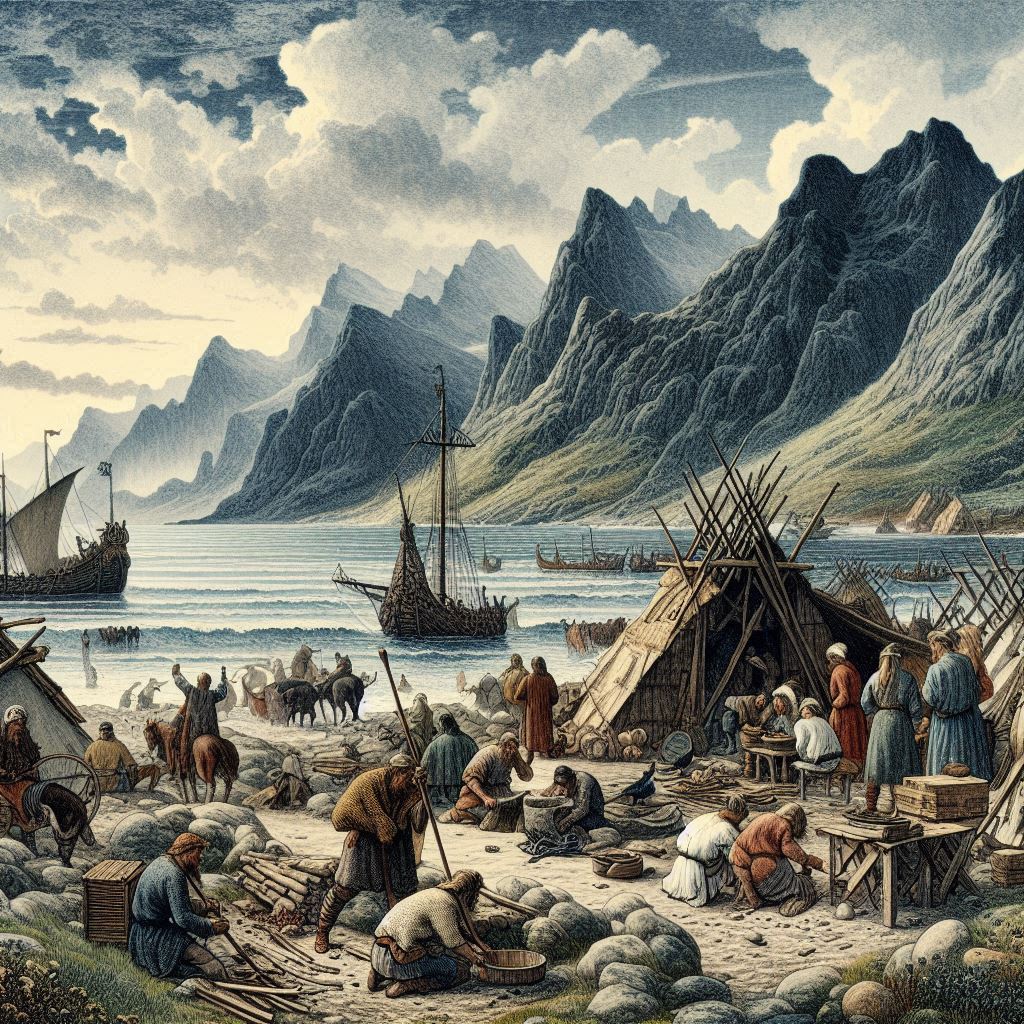
Coastal cultures have a long history of migration and exploration, with sea legends and stories passed down through generations. Their tales involve encounters with mythical creatures, lost treasures, heroic maritime exploits, conflicts with pirates, and the rise and fall of maritime empires.
Skjald Ulrich
Cartography
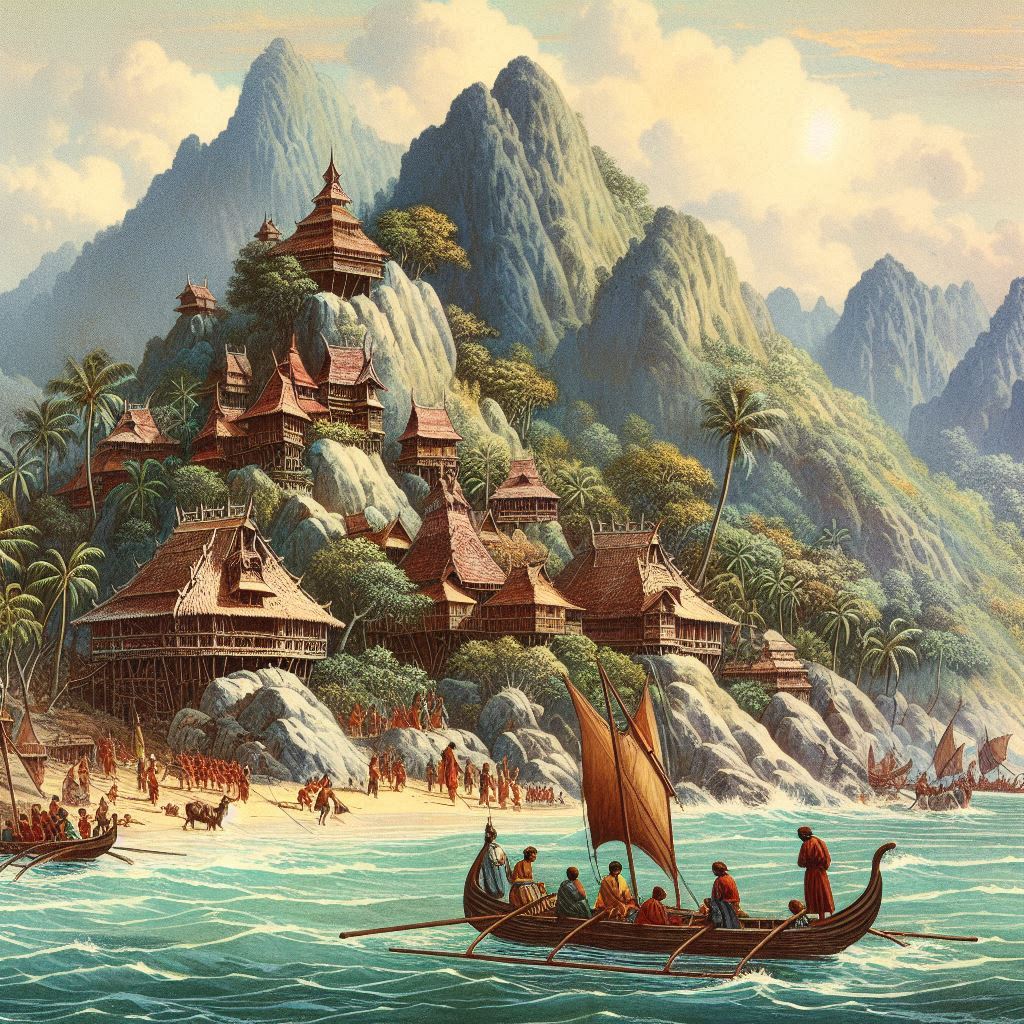
Coastal people traditionally live at lowland shores or nearby woods and foothills. Many are settled fishermen, farmers, and herders in rural areas, while others are ferrymen, river, and harbour tenders, or harvest resources connected to water.
Skjald Yell'a'Beard
Organisation
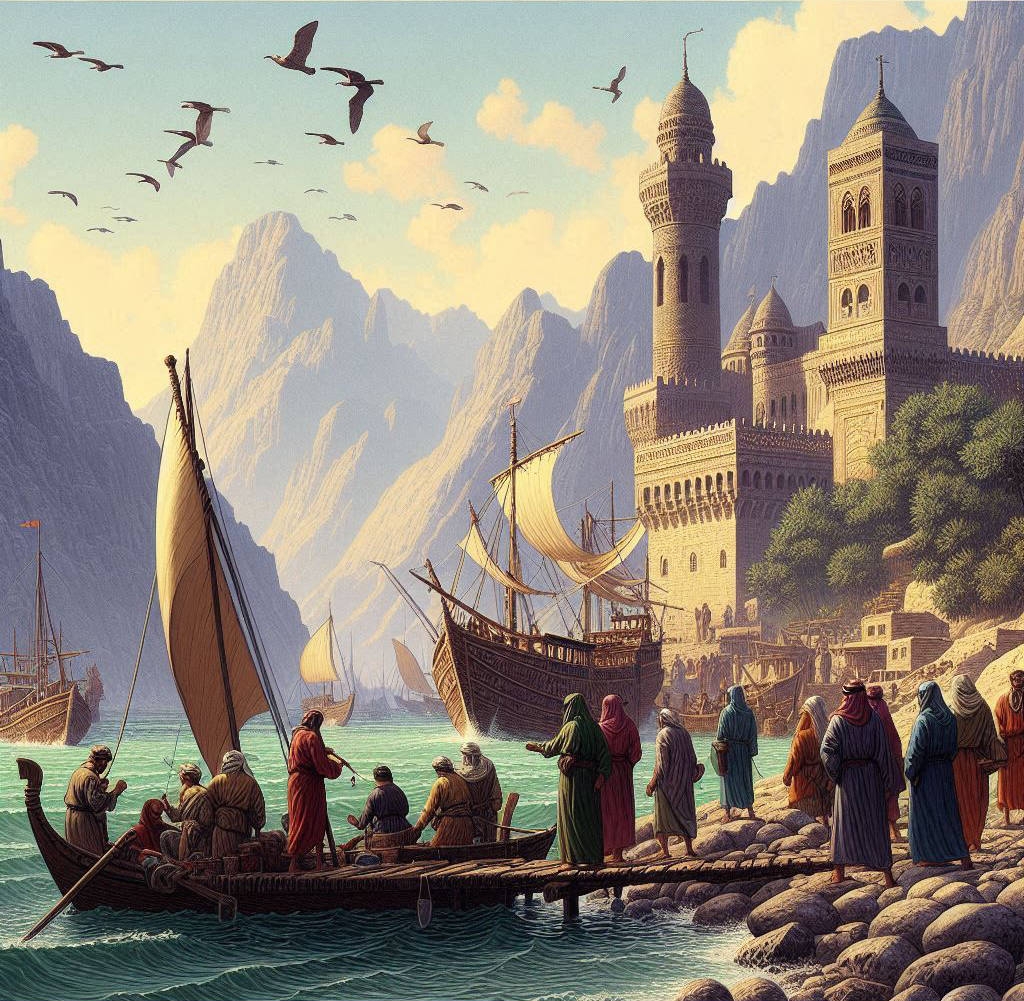
Coastal communities often have a hierarchical structure based on seafaring experience. Fishermen, merchants, and shipbuilders hold respected positions. Governance ranges from democratic councils to maritime dictatorships.
Skjald Ulrich
Special
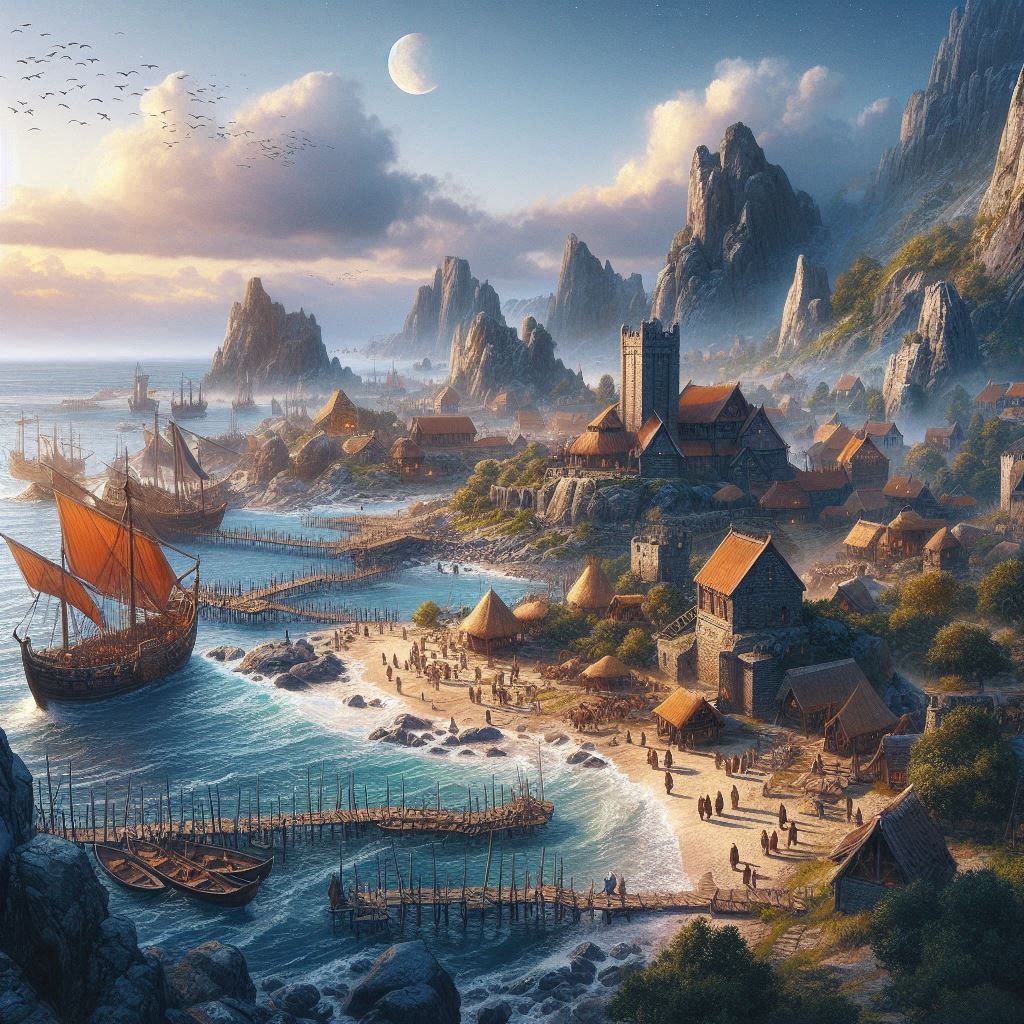
Coastal cultures possess unique maritime technologies, including advanced boat building, navigation tools, and fishing techniques. Their deep understanding of the sea and its resources sets them apart as master seafarers and traders.
Skjald Sigurd
Last Updated on 2024-10-20 by IoM-Christian
